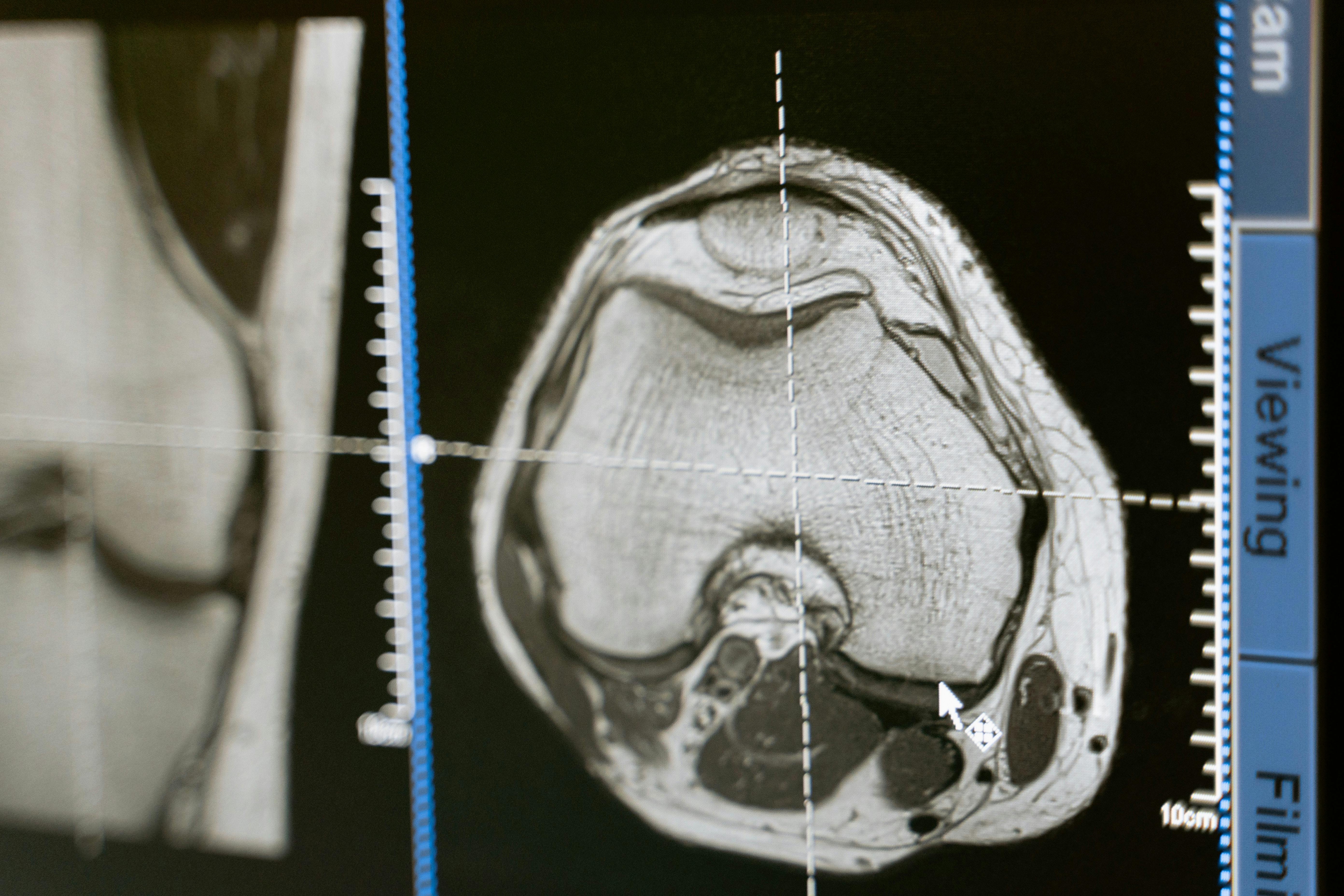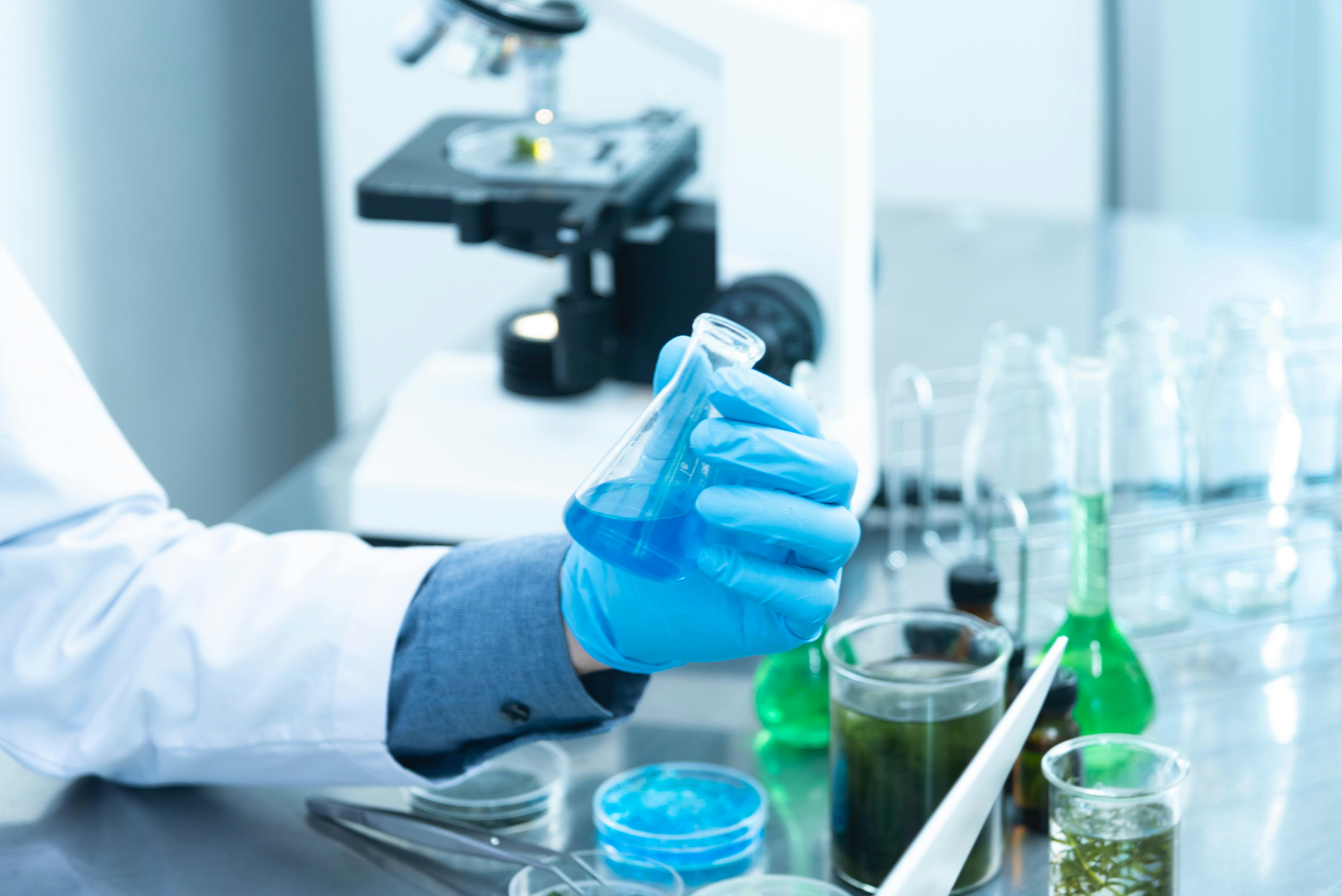
Photo by National Cancer Institute on Unsplash
AI in Biotech and Healthcare will revolutionize Drug Discovery, Personalized Medicine, and Diagnostics.
Artificial intelligence (AI) is transforming the field of biotechnology, particularly in drug discovery and development. By leveraging AI algorithms and data analysis, scientists are able to accelerate the identification of potential drug targets and optimize drug molecules. AI's predictive modelling capabilities enable researchers to simulate how drugs interact with the human body, ensuring safety and efficacy. Additionally, AI is revolutionizing clinical trial design, resulting in more efficient and cost-effective trials that bring new drugs to market at an accelerated pace. With AI, the entire drug discovery and development process is becoming more streamlined, cost-effective, and successful.
Revolutionizing Diagnostics & Health Monitoring with AI
AI is making significant strides in improving diagnostics and health monitoring. By analyzing medical images such as X-rays, MRIs, and CT scans, AI algorithms can quickly detect signs of diseases, leading to earlier and more accurate diagnoses. Furthermore, AI's ability to process vast amounts of patient data, including medical history and biomarker information, enables it to identify individuals at risk for certain diseases and facilitate early detection and intervention. Through remote monitoring and wearable devices, AI enables proactive health management by detecting changes in health status and intervening before emergencies occur. With AI, diagnostics and health monitoring are becoming more precise, personalized, and proactive, ultimately improving patient outcomes.

Unleashing the Potential of Personalized Medicine with AI
Personalized medicine is experiencing a revolution thanks to AI. By analyzing genomic data, AI can identify potential targets for personalized treatment, enabling physicians to tailor therapies based on a patient's genetic makeup. Moreover, AI algorithms optimize drug development specifically for different patient populations, considering genetic and biomarker data to create more effective treatments with fewer side effects. AI's predictive analytics models forecast a patient's risk for diseases or adverse events, allowing for early interventions or preventive measures. With remote monitoring technologies, AI supports ongoing patient care by continuously monitoring health status. Through AI, personalized medicine is transforming healthcare, improving patient outcomes and optimizing resource utilization.
Streamlining Research & Development with AI:
AI is revolutionizing the research and development (R&D) processes across various industries. By analyzing large datasets, AI algorithms can identify patterns, trends, and insights that would be difficult to detect manually. In drug R&D, AI expedites the identification of potential drug targets, optimizes drug molecules, and designs efficient clinical trials. Through automation, AI reduces the burden of routine tasks, allowing researchers to focus on complex scientific challenges. This increased efficiency and success rate of new drug candidates accelerate scientific discovery and ensure quick access to innovative treatments for patients.

A Future Transformed by AI in Biotechnology and Healthcare
Artificial intelligence (AI) is a game-changer in biotechnology and healthcare. From drug discovery and development to diagnostics, health monitoring, personalized medicine, and research and development processes, AI's impact is profound. Through AI, the biotechnology industry is witnessing faster, more precise, and cost-effective drug development. Diagnostics and health monitoring are becoming more accurate, proactive, and tailored to individual patients. Personalized medicine is taking centre stage, enabling treatments based on patient's unique characteristics. Meanwhile, AI is streamlining R&D processes, expediting scientific discovery and bringing innovative therapies to patients faster. To ensure responsible use, ethical and regulatory considerations are crucial. With AI's potential realized and ethical practices in place, the future of biotechnology and healthcare promises improved patient outcomes and a more efficient healthcare system.
Thank you 👍👍 for taking the time to read this article on the powerful impact of Artificial Intelligence (AI) in biotechnology and healthcare. AI is revolutionizing the way we discover and develop drugs, enhance diagnostics and health monitoring, advance personalized medicine, and streamline research and development processes. By leveraging AI's capabilities, we can expect faster and more accurate diagnoses, personalized treatment options, and proactive health interventions. However, it is essential to address ethical and regulatory considerations to ensure that AI is used responsibly for the benefit of patients and society as a whole. The future of biotechnology and healthcare looks promising with the transformative potential of AI within reach.

